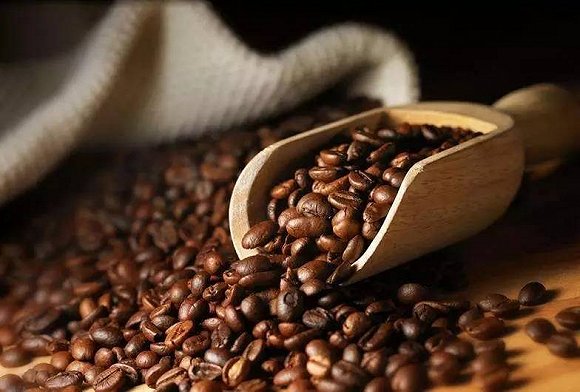Taste and flavor of Jamaican blue mountain coffee characteristics of Jamaican blue mountain

Professional barista communication, please pay attention to coffee workshop (Weixin Official Accounts cafe_style )
Type: Iron Pickup
Treatment plant: Abbey Green Farm
Flavor: Sweet, sour, bitter three flavors perfect match
Distinguish between true and false blue mountains
1 Appearance: Blue Mountain coffee beans are green, appearance is very neat, the size is medium small, some of the ends tilt. After baking, the volume increases a lot and it is very full.
2 grinding beans: real blue mountain coffee beans grow at high altitude, its cytoplasmic structure is relatively loose, when grinding by hand feel very crisp very cool very continuous, there will be no feeling of resistance.
3 aroma: aroma is very rich, dense; the so-called blend of blue mountain coffee, is not this aroma.
4 taste: real blue mountain coffee taste balanced, rich, there will be no one taste outstanding or lack of feeling, this is also any other coffee beans can not match, the most critical identification points. Blue Mountain Garden Bean's aroma is more subtle, and the taste is relatively stronger.
Feeling: Blue Mountain Coffee as the world's best coffee, classic balance characteristics, taste when there will inevitably be some subconscious, indescribable satisfaction.
Hand washed Jamaica Blue Mountains. 15g powder, medium grinding (small Fuji ghost tooth knife 4 grinding), v60 filter cup, 88-89 degrees water temperature, the first injection of 30g water volume, 27 seconds of stewing, injection to 105g water volume cut off water, wait for the powder bed water volume to drop to half, then inject water slowly until 225g water volume, tail section do not, water powder ratio 1:15, extraction time 2:00
Factory Name: Coffee Workshop Address: No. 10 Baoanqian Street, Dongshankou, Yuexiu District, Guangzhou City Contact Information: 020-38364473 Shelf Life: 90 Net Content: 100g Packing Method: Bulk Coffee Bean Ripe Degree: Coffee Ripe Bean Sugar Free Origin: Jamaica Roasting Degree: Moderate Roasting
Blue Mountain coffee is coffee brewed from coffee beans from the Blue Mountains of Jamaica. Among them, according to grades, it is divided into Jamaica Blue Mountain Coffee and Jamaica Alpine Coffee. The Blue Mountains are located in the eastern part of Jamaica Island. They are named because they are surrounded by the Caribbean Sea. Whenever the weather is clear, the sun shines directly on the blue sea, and the peaks reflect the bright blue light of the sea. The highest peak of Blue Mountain is 2256 meters above sea level, which is the highest peak in Caribbean region. It is located in coffee belt, with fertile volcanic soil, fresh air, no pollution, humid climate, foggy and rainy all year round.(Average precipitation is 1980 mm, temperature is about 27 degrees Celsius) This climate has created world-famous Jamaica Blue Mountain Coffee, and also created the second highest coffee price in the world.
[Flavor] Rich and mellow taste, perfect combination of sweet, sour and bitter coffee, no bitterness at all, only moderate and perfect sour taste, lasting fruit flavor
Jamaica Blue Mountain Coffee may be the most famous coffee in the world, but few people actually know its history and why its price is so high. The first to introduce coffee to the island of Jamaica in 1789 was a Frenchman fleeing the French Revolution. The first coffee cultivated was to increase French local consumption and then export, and the local industry was very small for the first 100 years. However, in 1932 the Jamaica Congress passed a law encouraging coffee farming to reduce the island's dependence on sugar exports. For Blue Mountain coffee quality assurance, modifications were made to the Jamaica Coffee Industry to standardize processing, improve coffee quality, and equalize marketing to save the fate of premium coffee. The Jamaica Industry Association has taken responsibility for the quality of Blue Mountain coffee in Jamaica. The smaller coffees that thrive on the island are equally as good, and final authority is given to Jamaica coffee exports-all coffee must pass through the Jamaica Industries Association before it can be exported.
Blue Mountain coffee shipments are very small, in 1717 King Louis XV of France ordered coffee cultivation in Jamaica, in the mid-1920s, Jamaica Governor Nicholas. Nicholas Lawes imported Arabica seeds from Martinique and began planting them in St. Andrew. To this day, St. Andrew's is one of the top three growing regions for Blue Mountain coffee in Jamaica, along with Portland and St. Thomas.
Since Japan has always invested in Jamaica coffee industry, most of the Blue Mountain coffee is now controlled by the Japanese, and they have also obtained the right of first refusal to buy Blue Mountain coffee. In 1992, Jamaica sold 688 tons of Blue Mountain coffee to Japan, 75 tons to the United States and 59 tons to Britain. 90% of Blue Mountain coffee is now purchased by Japanese. Since the rest of the world now gets only 10% of Blue Mountain coffee, Blue Mountain coffee is always in short supply regardless of price.
This is the packaging of coffee beans, genuine imports of Blue Mountain.
Jamaica BLUE MOUNT
Country: Jamaica Fiscal year: 2003
Altitude: 1600 m
Region: St. Thomas Parish
Degree of roasting: medium roasting
Treatment method: washing
Why Blue Mountain Coffee Tastes Pure "Secret"
Their coffee trees all grow on rugged hillsides, and the picking process is so difficult that unskilled local women workers simply cannot do it. It's important to pick coffee beans that are ripe, as immature or overripe can affect the quality of coffee. The beans are shelled the same day and allowed to ferment for 12-18 hours. Coffee beans are then washed and sifted. After that, the process is drying, which must be carried out on concrete floor or thick blanket until the humidity of coffee beans drops to 12%-14%. Then they are stored in special silos. When needed, it is taken out and roasted, and then ground into powder. These procedures must be strictly controlled, otherwise, the quality of coffee will be affected.
Important Notice :
前街咖啡 FrontStreet Coffee has moved to new addredd:
FrontStreet Coffee Address: 315,Donghua East Road,GuangZhou
Tel:020 38364473
- Prev

Jamaica Blue Mountain Coffee hand data how to drink Jamaica Blue Mountain
For professional baristas, please follow the Blue Mountains of Jamaica hand-washed by the coffee workshop (Wechat official account cafe_style). 15g powder, medium grinding (small Fuji ghost tooth cutter 4 grinding), v60 filter cup, 88-89 degrees water temperature, the first water injection 30g water, 27 seconds of steaming, injection to 105g water cut off, wait for the powder bed water to half and then water injection, slow water injection until 225g water, tail section
- Next

Characteristics of Jamaican Blue Mountain Coffee beans
Professional barista communication please follow the coffee workshop (Wechat official account cafe_style) this is the packaging of coffee beans, the authentic import of Blue Mountain. Jamaica BLUE MOUNT country: Jamaica altitude: 1600 m production area: St. Thomas parish roasting degree: medium roasting treatment: why washed Blue Mountain coffee taste pure secret their coffee tree full length in the rugged
Related
- Detailed explanation of Jadeite planting Land in Panamanian Jadeite Manor introduction to the grading system of Jadeite competitive bidding, Red bid, Green bid and Rose Summer
- Story of Coffee planting in Brenka region of Costa Rica Stonehenge Manor anaerobic heavy honey treatment of flavor mouth
- What's on the barrel of Blue Mountain Coffee beans?
- Can American coffee also pull flowers? How to use hot American style to pull out a good-looking pattern?
- Can you make a cold extract with coffee beans? What is the right proportion for cold-extracted coffee formula?
- Indonesian PWN Gold Mandrine Coffee Origin Features Flavor How to Chong? Mandolin coffee is American.
- A brief introduction to the flavor characteristics of Brazilian yellow bourbon coffee beans
- What is the effect of different water quality on the flavor of cold-extracted coffee? What kind of water is best for brewing coffee?
- Why do you think of Rose Summer whenever you mention Panamanian coffee?
- Introduction to the characteristics of authentic blue mountain coffee bean producing areas? What is the CIB Coffee Authority in Jamaica?

